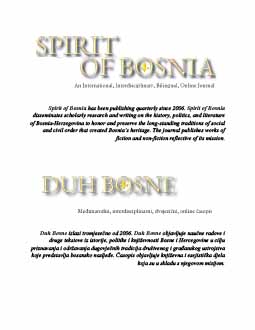
We kindly inform you that, as long as the subject affiliation of our 300.000+ articles is in progress, you might get unsufficient or no results on your third level or second level search. In this case, please broaden your search criteria.

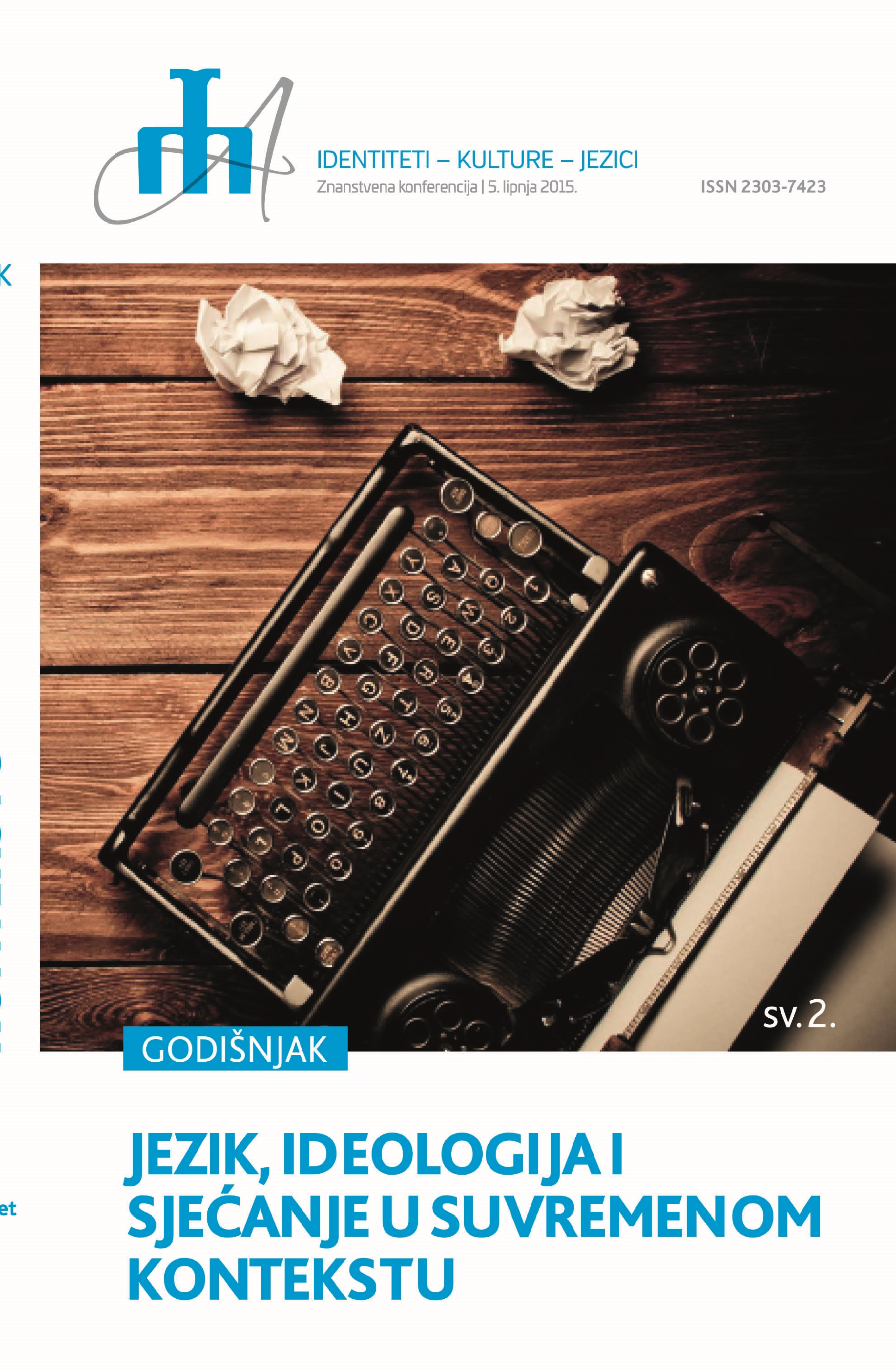
In the paper the author analyses and presents through practical examples the use of storytelling as the bearer of the persuasion and change ideology. The course of usage is presented through its inception in film industry, mass media to virtual reality. The author has explained how storytelling became part of the panoptic view and participation in the hegemony of power in such way that it assures the rules for behaviour as well as the pedagogy of change. In this paper storytelling is presented as the memory keeper and bearer of strategic project because it possesses the power which cannot be manifested in the control and discipline but in the collective story and memory.
More...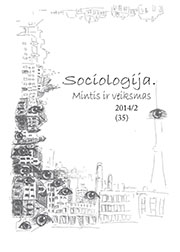
The article examines the concept of the political, and it’s relationship to the Late Soviet Socialism, adressed in the Sovietology oeuvre of Proffesor Alexei Yurchak. The question is raised whether the claim about inner paradoxes of the late Soviet system as a single discursive formation can be substantiated without addressing the probability of more fundamental discursive divisions, splits and multiplicities structuring life of the post-Stalinist epoch. The critical analysis of such concepts as „authoritative discourse“ and discursive „performative shift“ reveals contradictions of author‘s conceptual attempt to explain the legitimacy of the late Soviet system, as well as elucidates why the issue of the Soviet as the political remains suspended in the analytical shema of Yurchak.
More...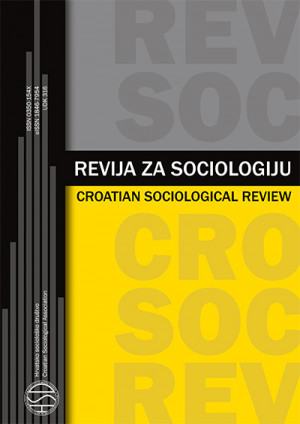
A number of recent international studies have reported the growing electoral success of populist parties among younger age groups. In this study, authors analysed the “breeding ground” for populism among the youth in Zagreb using the results of the Memory, Youth, Political Legacy and Civic Engagement (MYPLACE) project in Croatia. A mixed methods approach was employed with thematic analysis of 61 semi-structured interviews and regression analysis on a survey sample data of 1,216 young people aged 16–25. Qualitative analysis indicated analogies to Cas Mudde’s three core concepts of populism (the “good people”, the “bad elite” and the “general will”) among interviewees’ opinions.In addition, common ideological features of populism (nationalism and radical egalitarianism) were to a degree present among the interviewees’ attitudes. In the quantitative part of this paper, the authors narrowed the analysis of populism to the radical right variant of populism, and – given the lack of prominent populist actors in Croatia – to support of ideas rather than political parties. The attitude towards a political system with a strong leader not constrained by parliament was chosen as the outcome since it holds significant populist potential in contemporary democracies. Analyses showed the connection of the anti-elite, anti-systemic attitudes – as well as authoritarianism and a few right-wing political attitudes –with the strong leader preference. Both qualitative and quantitative results of this study indicated that the “breeding ground” for populism exists among the youth in Zagreb. Additional research is required to further examine that complex and previously unexplored topic.
More...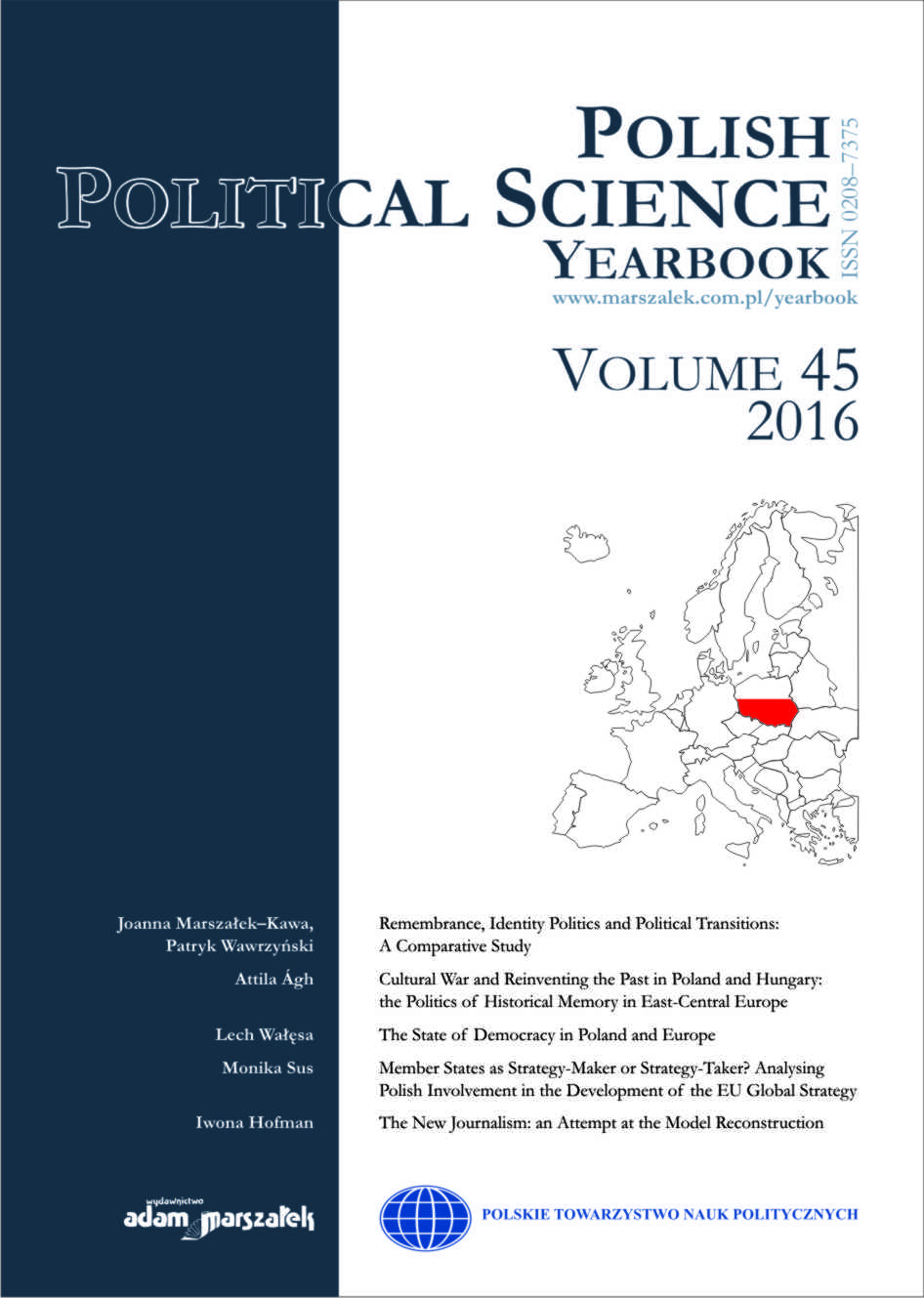
The paper presents results of the qualitative–to–quantitative narrative analysis of the transitional remembrance policy in South Africa during Nelson R. Mandela’s presidency. It refers to findings on the structure of political applications of historical interpretations to the issue of national identity reconstruction during democratisation. Therefore, the paper considers a degree in which remembrance story–telling was used to legitimise, justify, explain and promote the Rainbow Nation, the inclusive and non–racial vision of South Africa’s ’ideal self’ based on Archbishop Desmond Tutu’s theology of Ubuntu hoping. It investigated these relationships on eight levels – legitimisation of new elites, presence of former elites, transitional justice, social costs of transformations, promotion of new standards, the symbolic roles of democratisation, need for national unity and the new state’s identity in international politics. Moreover, the paper introduces a draft comparison with other cases of transitional remembrance policy – Chile, Estonia, Georgia, Poland and Spain – and it offers the structural model of the use of historical interpretations in South African transition, as well as discussing it with reference to the general model of the transitional remembrance policy.
More...
Peace is non–violence and there is only one way to achieve it: peace as structural and interpersonal non–violence. The daily non–violence is as instructive as the spectacular actions of Mahatma Gandhi and Martin Luther King. Peace education is better based on demonstration what we “can” than to postulate of what we should do. The Peace Studies prefer a resource–oriented approach to education instead of a deficit–oriented. Our central thesis is that the youth is living in a kind of transculturality, the best conditions for peacebuilding. Considering the increasing sensitivity we expected that latest in 2075 we will make the war a taboo. The central key to solve conflicts nonviolently is conflict transformation in trusting a spiritual third power in between the opponents, even secularized people. The peace education has to help us to discover the third in nonviolent activities. There is a lot of difficult issues that the non–violence has to reflect in future, including elimination of the extreme violence, reconciliation, an impact of economy, the peacebuilding’s relevance of structural measures.
More...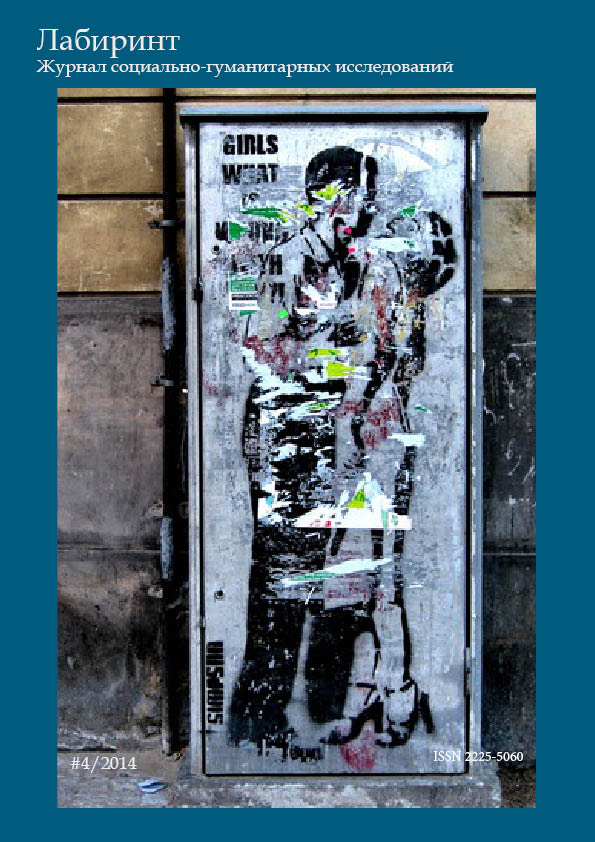
The article studies two works belonging to political cinema «Ordinary Fascism» by Mikhail Romm and «Die Welle» by Dennis Gansel) as examples of superficial criticism of the Nazi ideology. Yet, a true analysis of the fascist propaganda mechanisms needs shifting the point of view to the nature of ideology. The idea of strictly external and forcible methods of ideological influence should be contrasted with the idea of ideology as a form of everyday life. It is platitude, ordinariness, natural character of ideological structures and even the ugliest aspects of ideology that need understanding.
More...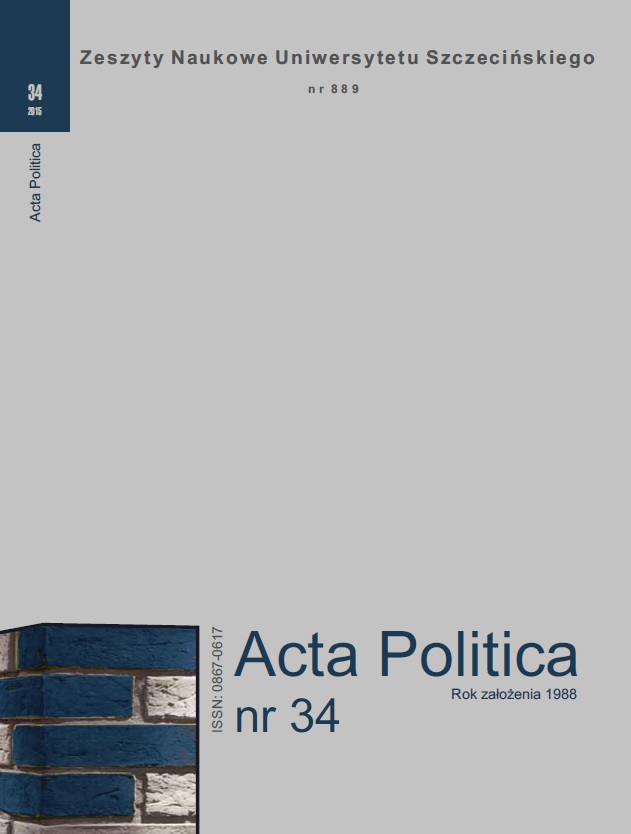
The share of national and ethnic minorities in political elections is one of the indicators of integration and a sense of equality in the society. The fundamental issue is therefore the answer to the question whether and to what extent ethnicity is manifested by representatives of minorities in the local elections in 2014.
More...
Representatives of the Vietnamese minority for the first time in its history in Poland took part in the local elections in 2014. This event is another element in the process of integration and equality of minorities in the country of residence. In the present text, I take issues related to the functioning of minority candidates Vietnam’s image in the media, along with the characteristics of the factors affecting its shape during the election campaign.
More...
The aim of this text was to compare policy of Central European towards national and ethnic minorities over the period of fifteen years (1989–2004). Besides Poland, Czechoslovakia (since 1993 Czech Republic and Slovakia) and Hungary are countries of quite different ethnic and national structure. Poland is a unique country due to its’ almost mono-ethnic population when comparing to Czech, Slovakia and Hungary, countries with a large Romani and in case of Slovakia also Hungarian minority. The period of communism 1945–1989 in all fields of political, social and economic life was under the dictate of Soviet Union. This applied to minorities issues as well. The changes which started in 1989 was a freely chosen way of political elites and societies of Czech, Hungary, Poland and Slovakia. Although the membership criteria of the EU (so-called Copenhagen Criteria) consisted inter alia of a criterion in favour of respecting the rights of national, ethnic and language minorities. It was a kind of “double standards” by the EU. The text analyses the impact of EU and other international actors on policies of Prague, Bratislava, Budapest and Warsaw in the field of national minorities rights during the accession preparations. It was significantly reduced after the full membership of Czech, Hungary, Poland and Slovakia after the 1st of May 2004.
More...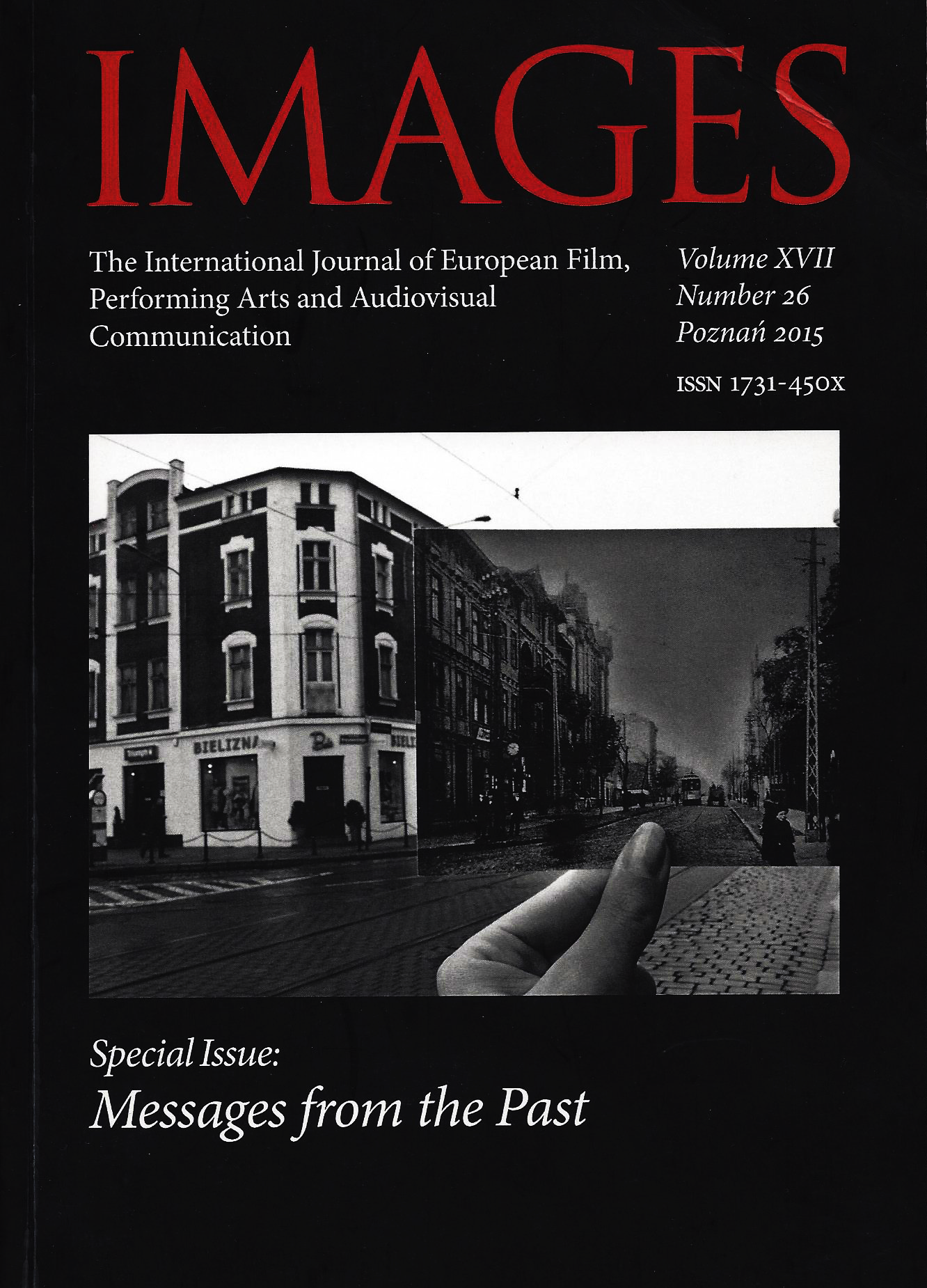
The article contains a synthetic look at the issue of film censorship, taking into account its various forms. The author combines the perspective of a contemporary synchronous with the diachronic perspective, dating back to the distant origins of cinema and film making, in conjunction with politics and ideology.
More...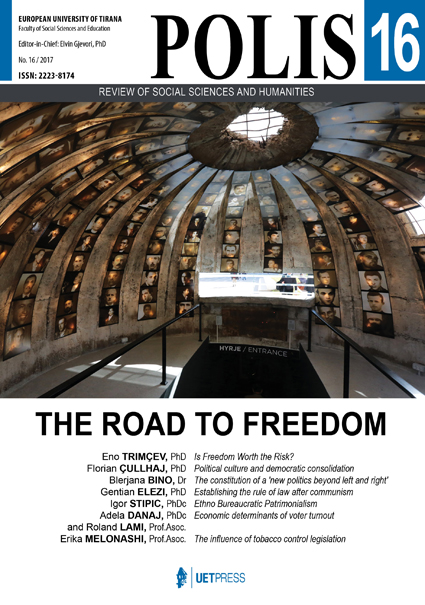
This article, by following theories of informal institutionalization and not of democratic consolidation, aims at conceptualizing the existing post-Dayton or post-transitional political regime in Bosnia-Herzegovina (BH). The study applies a structural approach to regime building, identifying the set of institutionalized rules structuring the interaction of the political power center and its relation with the broader society. The first part of the article explains the specificities of both first and second transition in BH and identifies its main actors, thus setting the conditions for posterior analysis. The second part of the article elaborates on the existence of ethno-national hegemony in BH socio-political space, and examines the importance of bureaucratic office and its patrimonialization for the structuring of what we define as Ethno Bureaucratic Patrimonialism (EBP). Towards the end, the analysis is completed through inclusion of both possibilities and realities of civil society development inside of this informally institutionalized regime whose most palpable characteristic is the inexistence of a protective state and the arbitrary rule of power.
More...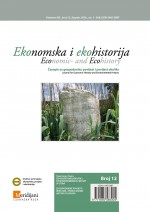
Goli otok (Barren Island) served as a site of a political prison and labour camp which was founded in 1949, at the peak of the Tito- Stalin political dispute. It was in function until 1956, when its operation as a political prison for Yugoslav pro- Cominformist dissidents was discontinued. During this period, at least 13 000 political prisoners were incarcerated on the island. Due to the covert nature of its workings between 1949 and 1956, it had been covered up and ignored as a topic during most of the Yugoslav period by the public and the historians alike. In 1980s, however, the narratives about Goli otok began to gradually reach the public. After the break up of the SFR Yugoslavia, a handful of historians who dealt with the topic of Goli otok mainly focused on the socio- political aspects of this political prison and labour camp’s past, drawing on a large body of former inmates’ testimonies about the harsh everyday life in the camp and the peculiar methods of its orchestration. However, the impact of Goli otok political prison and labour camp was not, of course, only limited to the Yugoslav socio- political climate and the individuals living in these times. Its influence is also noticeable on the very site of the labour camp- the island. Hard forced labour undertaken by thousands of political prisoners which included the construction of several workshops and small factories orientated towards the production and the distribution of various stone and wood products is but one of the factors which dramatically influenced the island’s environment. Human dwellings and accompanying industrial constructions erected on the island’s desert- like stone terrain, as well as the now afforested portions of once (literally) barren island are just some of the examples. In other words, the forced labour of the incarcerated thousands is inextricable from the impact on island’s environment, albeit the nominal purpose of this labour was ‘corrective’. This paper therefore aims to contribute to the study of Goli otok from the viewpoint of environmental history. The paper speaks to the works of the authors dealing with the environmental, carceral and labour history aspects in the study of USSR Gulag as one of the examples relatable to the Goli otok story. In so doing, the paper aims to contextualise Goli otok within a wider scholarly space, considering the geographical, ideological implications, as well as those of environmental and socio- political history.
More...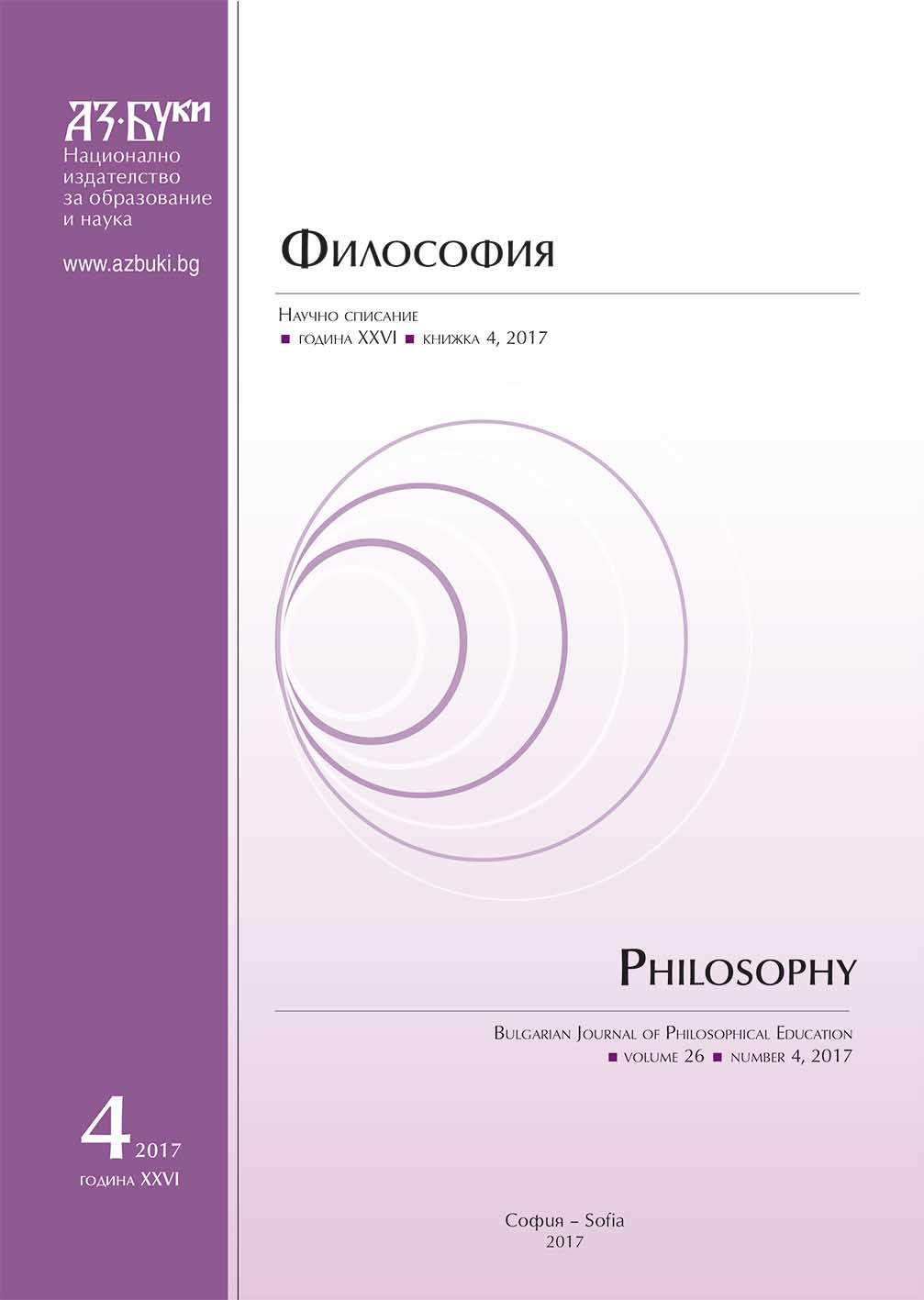
This statue will pose the question for the truth beyond language constituents in its defining and achieving and from this point toward its modeling grounded above all on cognitive parameters. The concrete solution will be searched concerning Wittgenstein’s conception, offered in Tractatus Logico-Philosophicus, for the “truth-conditions” of a proposition in logical space as its “representing relation” and for the way through which the proposition structures logical space. We will search whether this will be a legitimate version of a “logic of truth” in the sense of Kant, and which elements of Kantian logical project can be applied for the division of logical space for the cognition of an object and its cognitive dislocation in logical universum, exactly from the point of view of the whole cognitively and objectively formed universum. How we can outline the approaches, the algorithm of a “real-objective” calculation of the object value in the logical space.
More...
Vladimir Solovyov has his own unique presence in the philosophical discourse of beauty and love. His endeavor to achieve integrity and completeness in the reincarnation of nature and man is reflected in the presented article.
More...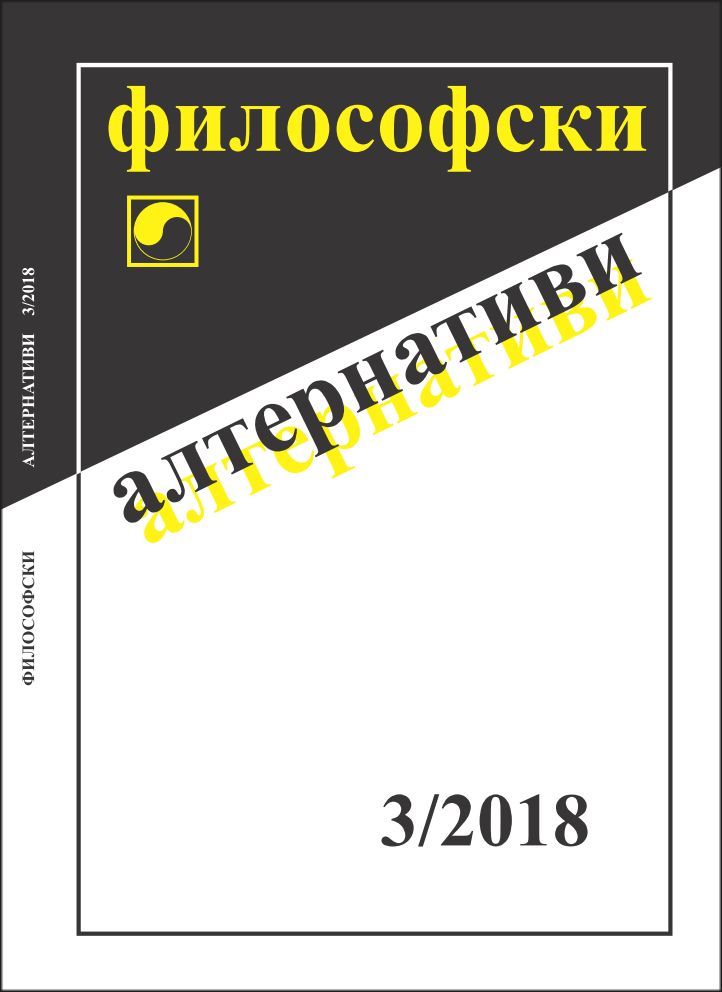
The consistent and logical assessment for the so-called “Socialist system” is „state Capitalism“ and all Marxist tenets about Capitalism -- class, class struggle, exploitation, nepotism, comprador bourgeoisie….should be applied to this system. Also the consistent and logical Marxist assessment of the actions of “Czarist Rus-sia" and USSR to Bulgaria would be being imperialistic. But although until 1940 Bulgarian Marxists sharply criticized „Czarist Russia“, Bulgarian Left today find it difficult to make such assessments.The reasons are not theoretical but psychological. As consecutive Marxists, they should come to uncomfortable conclusions about the System and about „Czarist Russia“ and USSR But for biographical reasons they have a deep personal sympathy for them. They believe that their prosperity has behaved to the "System", which in turn is the result of the occupation of Bulgaria from the USSR. And any negative assessment would be for them the attempt to destroy the world they have created and believe that this world was real, and challenging their value system. And often prefer to ignore all facts and logical analyzes, but to maintain their mental balance and to live in their artificial but beautiful world.
More...
The article discusses the process of strange transformation of Marxists into Putinists and Marxism in Putinism. This process is traced as a transformation of communist utopia and ideology into Orthodox fundamentalism and neo-eurasianism; the transformation of the totalitarian regime into a regime of "rival authoritarianism" and the communist nomenclature in a pseudo-capitalist oligarchy. The conclusion is that post-communism in Russia resembles Nazism rather than former communism.
More...
The paper presents the contemporary concepts of information and psychological operation in the contemporary environment. The concepts were presented through general theoretical considerations by presenting leading theorists from the US, Russian Federation and the PR China. The concepts explain the goals, content and methods of acting on potential groups and individuals, and the means of information and psychological operation. The goal of the paper is to show that the research problem is not important exclusively for political and military systems, but that groups and individuals are particularly exposed to the challenges and threats in the contemporary environment. Various means of information and psychological activity in the contemporary environment (rumors, fake news) and their consequences such as changing attitudes and behavior of people in political and social processes are presented. An empirical account showing the importance of this topic is an analysis of the European institutions' activities in counteracting fake news during important political processes and elections for the European Parliament.
More...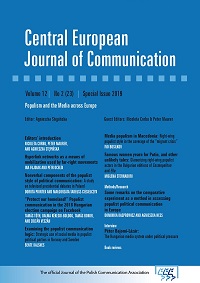
This analysis identifies the dominant media frames in the coverage of four right-wing populist actors — Vladimir Putin, Donald Trump, Silvio Berlusconi, and Roman Abramovich — by the Bulgarian editions of Elle and Cosmopolitan. Although the political platforms of these men are not, in fact, anti-establishment, which is the core characteristic of populism, they are referred to as populist actors because of their use of populist tools and discourses to practice so-called “neo-populism from above.” The four men were framed as: a carriers of a “golden touch”; b sources of profound/problematic wisdom; and c admirable collectors of “trophy” women. The findings are discussed as illustrative of the tabloidization of U.S. women’s magazine brands in the post-communist context of Bulgaria.
More...
In this paper fundamental information concerning the designing and conducting of comparative experiments, as methods which are able to be employed in the field of media studies, will be successively delineated. On the basis of the large-scale online experiment conducted in 15 countries in 2017, the assessment of the populist message impact as well as methodological challenges to such a project will be presented. We discuss challenges and lessons learnt from this type of research design.
More...